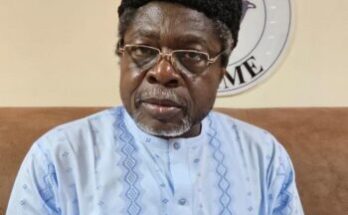By Iliyasu Gadu
As President Buhari faces what is increasingly looking like a revolt from within the patchy coalition of political groups that supported him to power midway into his first term in office, it is pertinent to look at what this portend to this fractious nation of ours especially as in just a matter of a couple of years hence we will be going to the polls to give verdict on how the president and his party has fared.
In 2015, Muhammadu Buhari was the unlikely political outsider around whom a critical mass of the nation’s political class coalesced, frightened out of their wits by the grim fate that awaited them had President Goodluck Jonathan succeeded in his re-election bid.
The decision to rally round Buhari was also predicated on the fact that none of the principal anti-Jonathan figures in 2015 seemed able to agree to let one among them lead the field, or even garner the kind of support needed to challenge President Jonathan individually. It therefore became glaring to all of them that despite their misgivings about him, Buhari was that neutral outsider with the ready fanatical following, status and character disposition which they all lacked, to lead the charge against President Jonathan in 2015.
At the inception of his presidency, Muhammadu Buhari predicated the thrust of his administration on three main issues; combating security threats to the nation especially from the North-east flank where the Boko haram scourge had taken and occupied large swathes of the area, governance issues particularly with regards to high corruption and fixing the economy by diversifying to other sources of revenue away from overdependence on crude oil exports whose price had taken a hit on the international market.
From what we have seen so far, it is clear that not all members of his administration and political party (talk less the political opposition) share his vision and passion in carrying out these tasks. On the security challenges and Boko haram, there are those who would rather that the president just faced the task of defeating the terrorists than delve into how monies voted to fight the scourge during the previous administration was expended. They are simply not comfortable with the fantastic tales of how respected and highly placed members of the Nigerian establishment have been found culpable in the whole conundrum. Again there are also those who while purporting to support the president in this crusade as their standing in the administration demands of them, are however sabotaging it by redirecting the resources away from where it is meant to reach.
The anti-corruption issue is one that President Buhari was never going to get any reasonable measure of support. As the president himself would know, corruption has eaten so deep into the psyche of Nigeria that the only public official or officials not guilty of it are probably the ones against whom the searchlight had not been directed for one reason or the other. And having seen from the results of the anti-corruption efforts of the Buhari administration that the issue transcends the ethnic and religious divide of the country, its counter-attack against the government also mirrors the same template without regards to party affiliation and sectarian loyalties and sentiments. Nigerians are simply mortified that the fiercest resistance to President Buharis anti-corruption drive comes from members of his own political party.
As for the promised economic diversification, the administration has to contend with not only external factors of falling oil prices and the foreign exchange issues arising therefrom, it is also finding it difficult to plug the leakages in the entire value chain of the Nigerian economy. Against its most trying efforts to rejig the economy, the administration is always confronted with both local and foreign economic predators ever ready to scuttle.
The outlook from all these indicate that the circumstances that made President Buhari such an attractive prospect for the political class in 2015 may not be so in 2019.
In this regard the political class both from within the President’s own All Progressives Congress and the opposition Peoples Democratic Party out of self-preservation have found common ground to work to contain the President from carrying out some of the radical programmes that form the hallmark of his politics especially those policies that appear to bear negatively on them. By its composition of members from virtually all the political parties, the National Assembly has proven to be the strategic arena where this game is most visibly and effectively played out.
Going by this outlook baring any fortuitous developments, it will be safe to bet that by 2019 President Buhari’s support base among the political class would be greatly eroded. His support base among the neutrals in the country will also shrink considerably. And by that date, the nation as a whole will once more be faced with a Hobson’s choice of whether to consider President Buhari as being surplus to requirement or stick with him with all the uncertainties this choice will throw up.
Gadu wrote from Abuja



